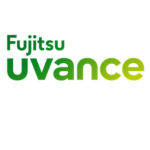ASE Technology Holding, the world’s largest semiconductor assembly and test services provider, is banking on artificial intelligence demand to drive outsized growth in its testing operations this year, even as questions linger about sustainable momentum in the second half.
The company’s chief financial officer Tien Hung-tse told investors at Taipei’s Computex technology conference that testing business growth will reach twice the pace of traditional packaging services in 2025. ASE expects testing operations to represent 19% to 20% of total assembly, test and manufacturing revenue by year-end, up from current levels.
The optimistic projections come as the global semiconductor market is forecast to grow 15% in 2025, driven primarily by AI applications, with chip sales reaching a record $627.6 billion in 2024. However, ASE’s own executive acknowledged uncertainty about the second half, noting that while early demand pull-forward exists, industry variables remain significant.
The Taiwanese company is concentrating new testing capacity in Taiwan rather than diversifying geographically, a strategy that could expose it to geopolitical risks. ASE cited market research suggesting semiconductor values could reach $730 billion by 2030 and exceed $1 trillion by 2035, though such long-term forecasts often prove optimistic.
Advanced testing has become critical as AI chip complexity increases, requiring multiple testing stages throughout the value chain. Yet ASE faces intensifying competition from Chinese rivals expanding testing capabilities while Taiwanese companies focus on higher-end AI applications.




